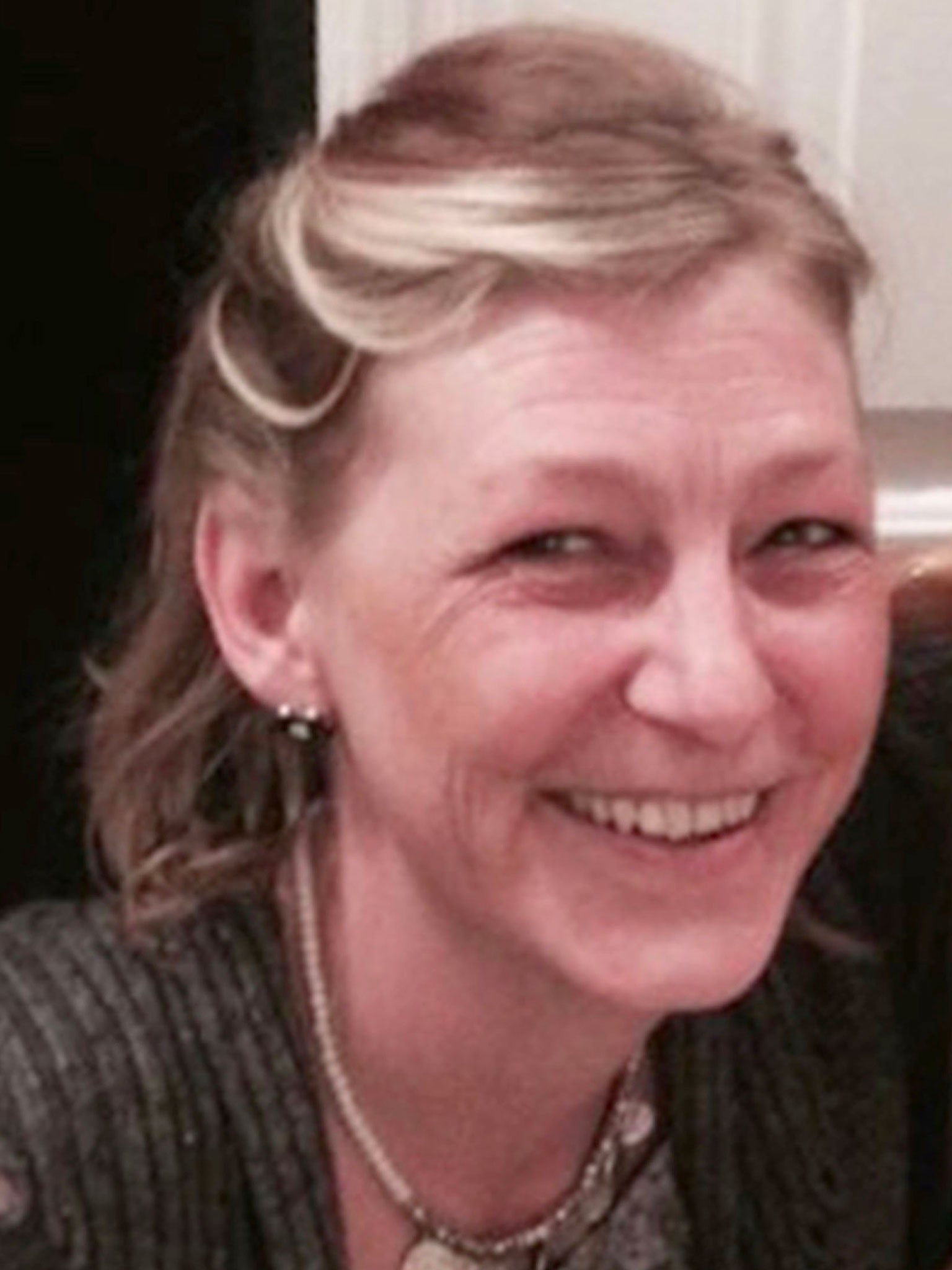Salisbury bins where Charlie Rowley may have found novichok bottle seized for testing
Nerve agent victim previously said he may have found what he believed to be a perfume bottle behind shops
Two industrial rubbish bins where the bottle of deadly novichok that killed Dawn Sturgess may have been found have been removed from Salisbury for testing.
Charlie Rowley told ITV News there was a possibility he found the item while looking for “treasure” among rubbish in the city centre days before falling ill. He described his memory of finding what he believed to be a sealed bottle of perfume as “vague”, ruling out all potential locations apart from bins at the back of shops near The Cloisters pub.
The two bins he identified as a possibility have now been seized for testing at the Porton Down defence laboratory, with photos showing them being covered in protective tarpaulin and loaded onto a van on Thursday.
A spokesperson for the Metropolitan Police confirmed two bins had been removed from behind shops in Catherine Street and taken for analysis. “Officers from the Counter Terrorism Policing Network are continuing to speak to Charlie Rowley about his recollections prior to him falling ill,” a statement added. “The advice from Public Health England remains that the risk to the public is low.”
Investigators have not ruled out the possibility that another bottle of novichok may have been dumped by the culprits who targeted Sergei Skripal and his daughter in March.

Mr Rowley does not believe he picked up the bottle in nearby Queen Elizabeth Gardens, but police said searches continued in the park as a “highly precautionary measure to ensure that there is nothing of investigative relevance at that location, and to provide confidence to the public that it is safe to use the area when it is reopened”. Precautionary tests are also being carried out on the Wiltshire air ambulance, ambulance station, emergency vehicles and kit worn by the first responders who treated Ms Sturgess and Mr Rowley. On Tuesday a cordoned-off path was reopened to the public, following the reopening of sheltered accommodation at John Baker House where Ms Sturgess lived.
Relatives and friends of the mother-of-three attended a private funeral on Monday, where Ms Sturgess’s 11-year-old daughter spoke. Ms Sturgess was remembered by her family as a “gentle soul who was generous to a fault”. She died in hospital on 8 July, little over a week after collapsing at Mr Rowley’s home in Amesbury.
Mr Rowley recalled presenting the “perfume” to his partner as a gift before she sprayed the “oily” substance directly onto her wrists, while he got some on his hands before quickly washing it off. Ms Sturgess fell ill within minutes on the morning of 30 June and Mr Rowley was taken to hospital hours later, with a major incident declared after tests showed they had been exposed to a nerve agent.
An inquest into Ms Sturgess’s death has been adjourned to January, as a police murder investigation continues alongside searches and decontamination work in Salisbury and Amesbury. Mr Rowley, 45, was initially in a critical condition but was discharged from Salisbury District Hospital on 20 July. The leading line of inquiry is that the couple came into contact with novichok dumped in Salisbury by the people who poisoned the Skripals.
The hospital also successfully treated Mr Skripal, a former Russian double agent, and his daughter after they were poisoned with novichok smeared on his front door in March.
A government source said the poison could have been smuggled into the UK through an airport undetected. Police believe they have identified the suspected perpetrators, who are Russian and are likely to have left Britain using false identities. Sources told The Independent the potential culprits had been narrowed down to between two and four people, including a woman, who may be linked to the Russian GRU intelligence service – where Mr Skripal worked before turning for MI6.
The Russian government has denied involvement in either poisoning after the British government accused it of using the UK as a “dumping ground for poison”.
The Amesbury incident has once again raised diplomatic tensions, and the UK has been developing new defence plans with Romania that aim to counter Russian “aggression”. Gavin Williamson, the defence secretary, announced that the British Army will support a Romanian training exercise later this year – known as Exercise Scorpions Fury – while a memorandum of understanding on future defence cooperation will also be developed. He cited the Salisbury incident among the factors driving the “deterrence to those who wish to do our nations harm” at a press conference on Thursday.
The Organisation for the Prohibition of Chemical Weapons (OPCW), which verified the use of novichok in March, sent investigators back to Britain to collect fresh samples for testing. They are currently being analysed at designated international laboratories and the results are expected within weeks.
Public Health England’s advice states that the wider risk to the public remains low but urges local residents not to pick up any unknown items “such as syringes, needles, cosmetics or similar objects made of materials such as metal, plastic or glass”.

